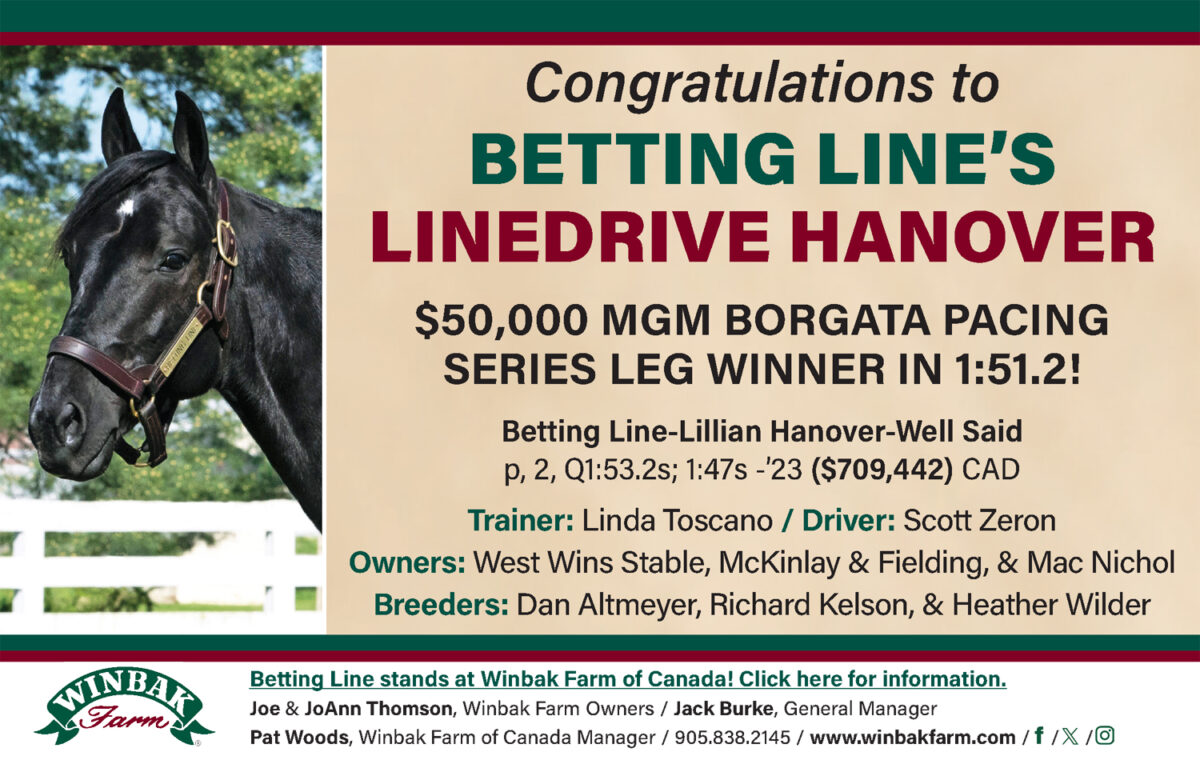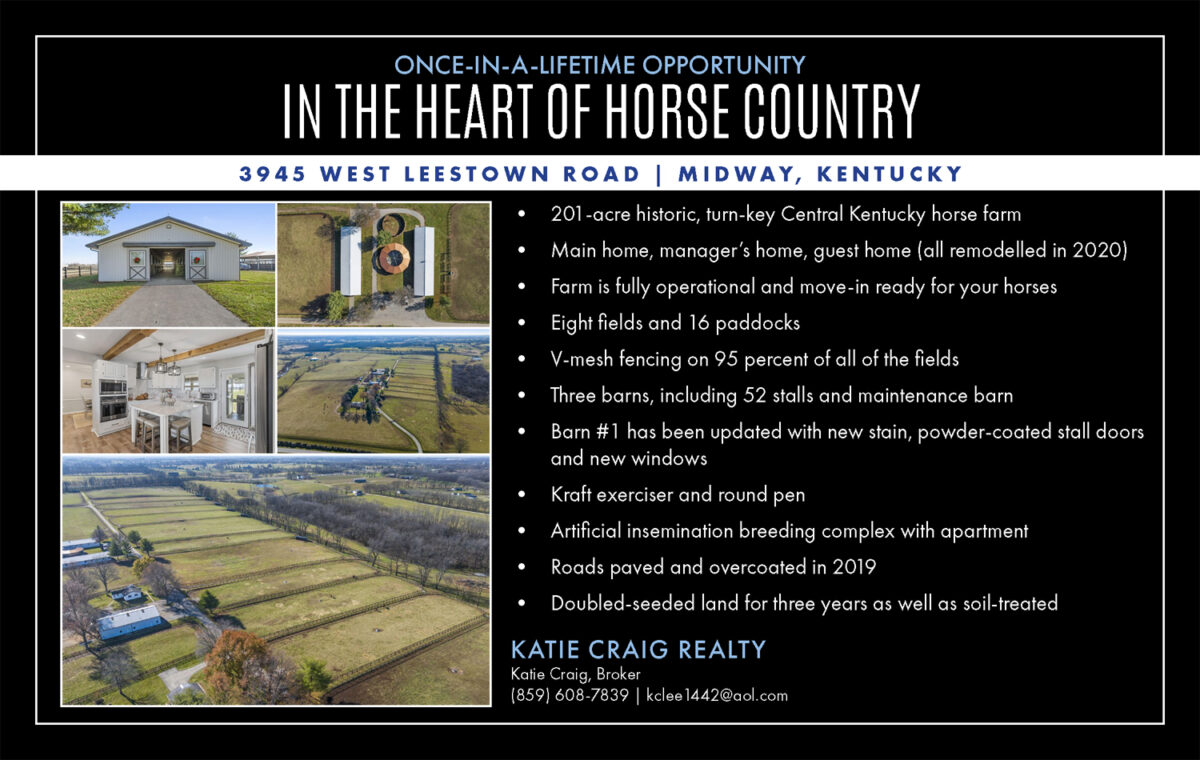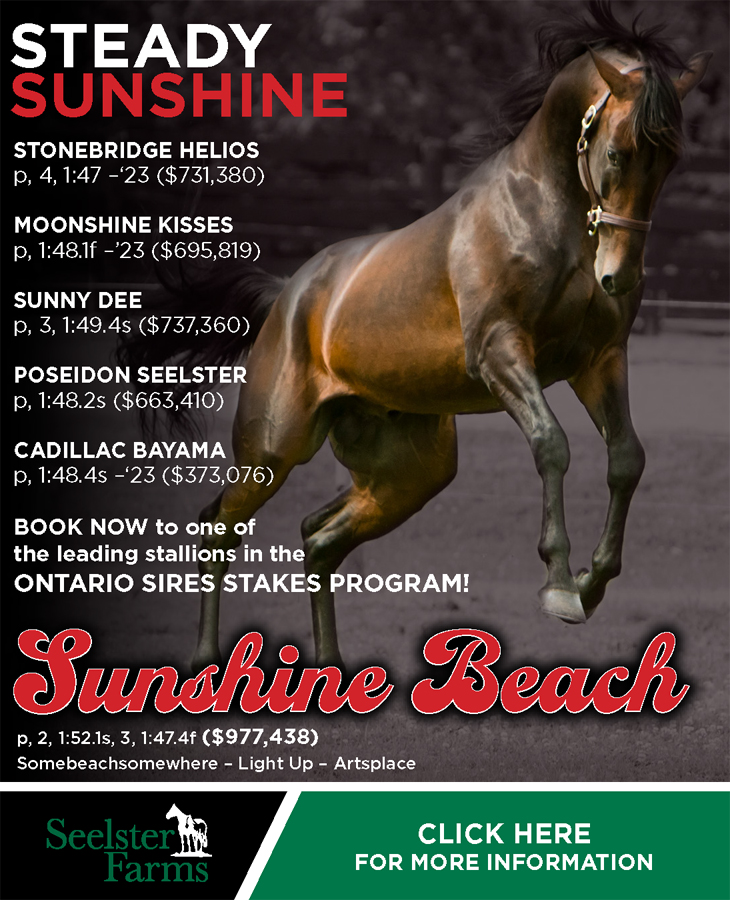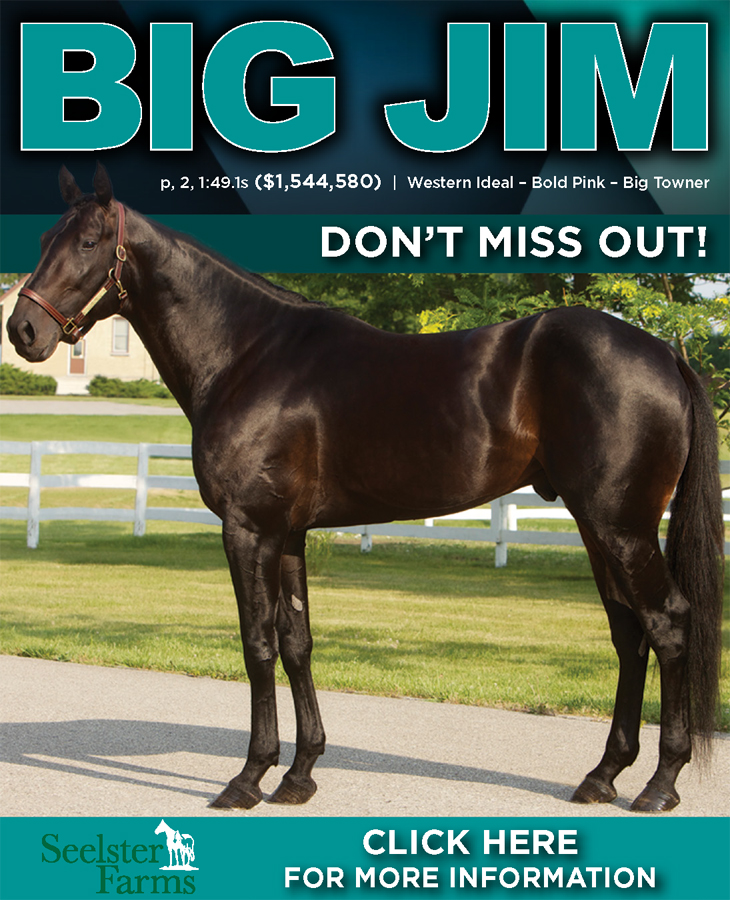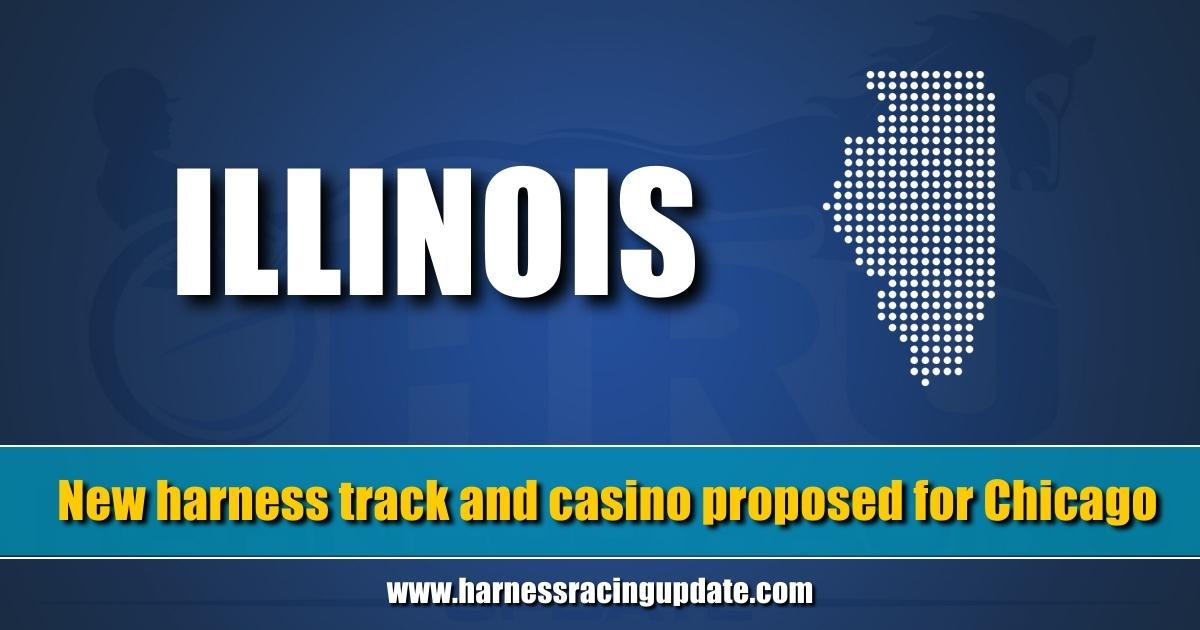

New harness track and casino proposed for Chicago
A group of investors wants to build a racino south of the city, some 25 miles from
Hawthorne. But will Hawthorne allow it?
by Neil Milbert
A group of wealthy investors, the south suburban Chicago village of Richton Park and state senator Bill Cunningham are trying to extend a lifeline to the Illinois harness owners, trainers, drivers and breeders who are struggling for survival because of Hawthorne Race Course’s stalled racino project.
Real estate developer Drew Daniels is a managing member of the group known as Greenway Entertainment Group and another member is Roy Arnold, one-time president of Arlington International Racecourse and currently chief executive officer of Endeavor Hotel Group.
Greenway’s plans to build the combination harness track and casino on an 80-acre Richton Park site adjacent to Interstate Highway 57 became public during an Illinois Senate executive committee hearing on March 23.
Daniels also has notified the Illinois Gaming Board that it has the site under contract, has made initial design and engineering plans for a $300 million development and has had several meetings with elected officials of Richton Park.
Village manager Regan Stockstell issued a statement that said the village “is supportive” and “the racino presents a meaningful economic development opportunity [for] the south suburbs that should be allowed to proceed.”
But there is a statutory roadblock: Hawthorne’s right to veto construction of any competing racino within 35 miles of the racetrack. The proposed Richton Park racino falls within that boundary.
“We’ve been in conversation with Senator Cunningham and it was suggested that we go after the 35-mile rule [to have it eliminated by the legislature] and that’s what we did,” said Marty Engel, president of the Illinois Harness Horsemen’s Association (IHHA).
“The whole issue is we’ve been waiting for years for the renovations at Hawthorne and a second track. When the [gambling expansion] bill was passed four years ago [permitting six new casinos plus casino gambling at Illinois racetracks with a portion of the revenue earmarked for purses] people thought it might take a year or two, but everything was going to be good. Here we are four years later and we still are waiting for some sign of additional money.”
Senator Cunningham is sympathetic.
“Horse racing is dying while we wait for a racino to be built at Hawthorne,” he said. “So, I think we have to be open to other options.”
In his letter to the Illinois Gaming Board, Daniels also emphasized that the delays in Hawthorne’s racino plans have created a “significant crisis.”
“We urge the Illinois Gaming Board and the Illinois General Assembly to consider the loss of revenue and the endless delays that the current Act permits and promote an alternative that allows this critical and meaningful revenue to commence without further inexplicable impedance,” Daniels said.
Exacerbating the crisis has been the closing of Arlington International Racecourse by its corporate parent Churchill Downs Inc. (CDI) following the historic and palatial thoroughbred track’s 2021 meeting, leaving dual-purpose Hawthorne as the only racetrack in the Chicago metropolitan area.
After lobbying for many years for permission to conduct casino gambling at Arlington, CDI did an abrupt about-face following its 2019 acquisition of a majority interest in Rivers Casino, the state’s most profitable casino. The track is located only five miles northwest of Rivers and obviously CDI didn’t want Arlington to compete with the cash cow.
So, CDI shut down Arlington and sold the property to the Chicago Bears for construction of a football stadium and other redevelopment with the stipulation that there would be no racing or casino gambling on the property. Not only has this eliminated racino competition it also has eradicated nearby thoroughbred competition for Rivers for the gambling dollar and crippled both thoroughbred and harness racing in the state.
Consequently, the IHHA and the Illinois Thoroughbred Horsemen’s Association (ITHA) entered into a time-share arrangement with Hawthorne that began in 2022 with the meetings divided in four segments and that is continuing in 2023 under a different format. This year, the thoroughbreds began their meeting March 4 and will continue racing through Sept. 4 after which there will be a Sept. 9-Dec. 31 harness meeting.
To control the damage inflicted by the long layoff Hawthorne and the IHHA have made arrangements to conduct non-betting races twice weekly from June 12-Aug. 31 at the Springfield State Fairgrounds, 175 miles south of the track. Purse money totaling approximately $780,000 will come from the horsemen’s account at Hawthorne and Hawthorne is footing the $100,000 bill for operating expenses.
In 2020, Hawthorne began preliminary demolition work in preparation for reconstruction of the track into a $400 million facility that was scheduled to open in 2021.
However, the demolition project has stalled. As a Carey family-owned business with about 160 shareholders, Hawthorne had to restructure to make the Illinois Gaming Board’s vetting process easier and then COVID-19 complications, supply chain issues, inflation and high interest rates have caused further delays. Now, although Hawthorne’s president Tim Carey is struggling to complete a financing deal, he is making plans to complete the demolition work this year, construct the state-of-the-art racino and open in 2024.
“It’s a big family and they want total control [rather than acquiring an existing gaming entity as a financial partner],” Engel said. “Most places [in Illinois] are doing temporary casinos [such as ones in downtown Chicago, Rockford and Waukegan near the Wisconsin border] but Hawthorne wants everything to be perfect when they open their doors. There’s no doubt in my mind that the Carey family has nothing but the best intentions for the industry, but the problem is so many [horse] people are hurting and some want to get out of the business. Horsemen can’t hold out much longer. They’re desperate. The thoroughbreds are holding on by a thread.
“So many trainers are up there, age wise and they’re thinking it’s going to be years before something gets done and maybe it’s time to retire. Two outstanding young drivers, Kyle Wilfong and Kyle Husted, have bought homes in Indiana. They’ve bought some Illinois-breds and their intent is to race them here this year, but I don’t know if it’s going to be full-time. The breeders’ hands are tied. Do they go for a sure thing and breed for Indiana, or do they hope that things will work out here and there will be a strong demand for Illinois-breds?”
Former Governor Jim Edgar sees the situation in the same light as the IHHA president. Edgar, who was governor from 1991-1999, is a small scale thoroughbred owner and breeder and owns a 2-year-old and a 3-year-old harness horse in partnership with Kenneth (Doc) Walker, the state’s largest standardbred breeder.
“I haven’t read the [proposed] legislation [eliminating the 35-mile boundary] so I don’t know the specifics, but I do know what the problem is,” Edgar said. “Having only one track limits the number of days available for both breeds. Fewer dates make it extremely difficult for either of the breeds to survive. The last two years I have not foaled any thoroughbreds in Illinois. The number of foals in Illinois has gone down every year because people think they can’t break even here with purses that don’t compare with those tracks in other states offer.
“I know some in government think horse racing is a dead industry, but it’s proven that it can be viable with a combination of racing and a casino. You can have a viable racing program which creates a lot of jobs. I know that from my experience racing in Indiana. The casino bill could have revived Illinois racing but nothing happened. We’re letting a great opportunity slip through our fingertips.”
IHHA executive director Tony Somone projects that casino gambling at Hawthorne would add as much as $12 million to the harness purse account at Hawthorne that currently is about $7 million.
The 2019 gambling expansion bill also allowed for a new harness track/casino to be constructed in one of seven south suburban Chicago townships but Richton Park is located in another township.
Later that year, it appeared the south suburban township racino would become reality when video gaming operator and developer Rick Heidner and Carey informed the Illinois Racing Board that they were partnering to construct the new facility in Tinley Park.
An inaugural 2020 meeting from Dec. 6-29 with racing on Sundays, Mondays and Tuesdays was awarded by the board at the dates’ hearings.
But then the Chicago Tribune did what Edgar described as “a hatchet job” on Heidner, linking some of his business endeavors to a banking family with alleged organized crime connections and Governor J.B. Pritzger responded by denying a racino license and racing dates at the Tinley Park location.
Later Heidner was vindicated by the Illinois Gaming Board but by then the project was dead.
According to Engel, Carey anticipates a second track reopening with a casino after Hawthorne finally completes its reconstruction and begins casino gambling in 2024.
“We want the Careys to succeed,” the IHHA president said. “We want them to resume construction. We like them. We trust them. We can work with them.
“But we just can’t wait much longer.”







